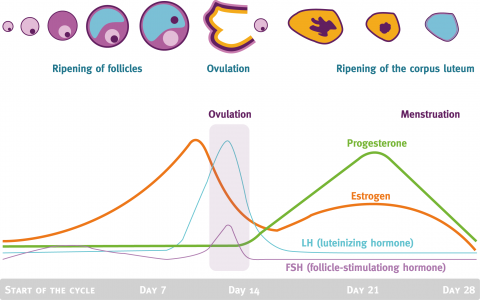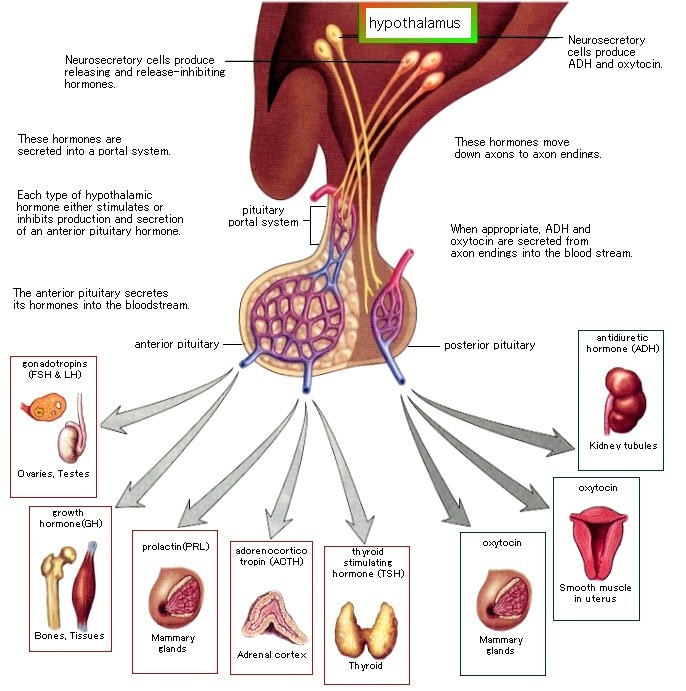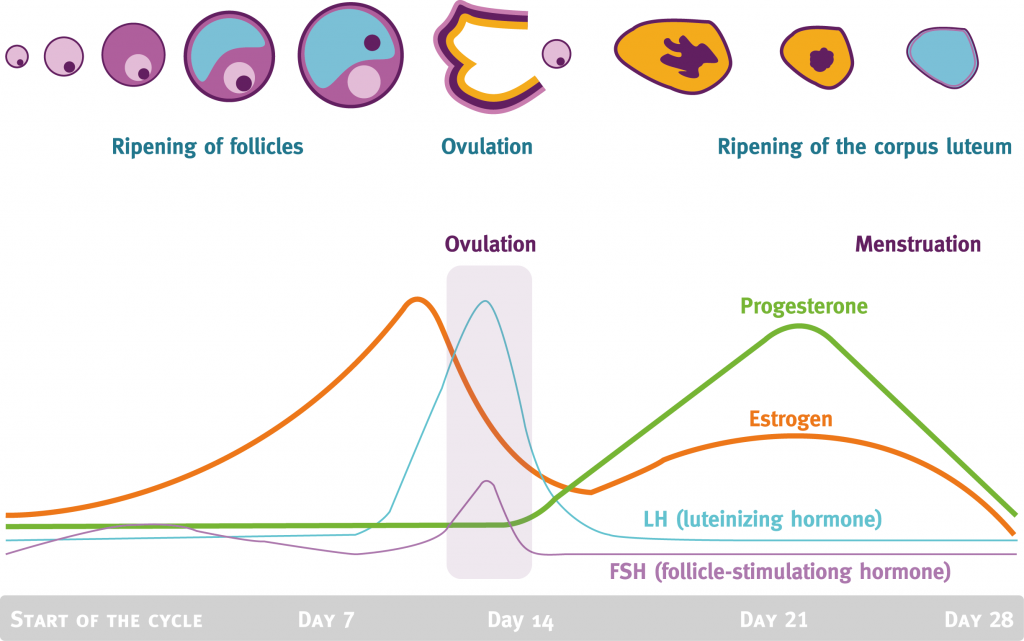
One of the most sought out requests I get is in regards to hormones, especially for women. More often than not, they have been to 1-2 other providers and not getting answers. Instead, they get a hormone test and then prescribed a hormone, synthetic or bio identical. It sounds logical but that approach can do more harm than help, especially long term. Let me say it upfront, I’m not a fan of hormone replacement.
Why? Because hormones are messengers of harmony. You’ve heard the saying, ‘don’t shoot the messenger?’ I look at hormone replacement in the same light. A hormone just does what it’s told to do.
Hormone Assessment Requires Context
Context #1: The Nervous System
Every minute of every day, your nervous system is organizing and coordinating what is happening to you or what could potentially happen to you. This organization will either create pathways to favor your immediate protection. Or this organization will create pathways to favor your long term legacy. Here’s the catch. If you aren’t set up for immediate protection, there’s no reason to plan for your legacy.
I was listening to a podcast once and the guest was some sort of an elite military trained individual. When in active duty, he had the type of position that he wasn’t allowed to tell anyone what he was doing. The reality that he may become separated from communication or his troop was on the side of probable. In this podcast, he was giving tips on how to survive the wilderness.
There were 3 things that one needs to survive the wilderness: Shelter, Food, and Water. He said the #1 reason why people fail to survive the wilderness and die is that they go seek food and water before establishing shelter. They are looking to sustain their long term legacy over their immediate protection.
Most of us are no different. We go and seek that long term legacy by trying to balance hormones. The problem is that your innate intelligence is over riding your well-intentioned, yet selfish behavior to make sure you have protection right now.

This all takes place in the nervous system. Assessing the situation happens in your hypothalamus. Your hypothalamus then triggers your anterior pituitary to send the appropriate signals to the body in response to what is happening in life at that moment. The pituitary can talk to your adrenals, your gonads, your thyroid, your liver, and skin (stimulating sun tan, freckles, etc).
If you need immediate protection, your pituitary is going to spend most of its time and energy talking to the adrenals. This is your stress response. A stress doesn’t have to be just mental or emotional like fear and worry. A stress is going to include what areas of life you are deficient and or toxic. It will be nutrition, movement, thoughts, social, spiritual, chemical, electromagnetic, etc.
The point is that if your brain is setting up signals for your immediate protection, it’s not going to support and waste energy on long term legacy. Therefore, the signals that go to a woman’s ovaries, FSH (Follicle Stimulating Hormone) and LH (Luteinizing Hormone) get disrupted. FSH will have a major role in the ovulation of a follicle in the menstrual cycle, producing estrogen. LH will have a major role in the development of the now empty follicle to the corpus luteum, producing progesterone.
The problem is that traditional hormone testing is a one day spot shot of estrogen and progesterone without giving context as to the deficiencies and toxicities the individual woman is facing. All the doctor asks for is symptoms. Symptoms are not sufficient context.
If you are super stressed, your brain will shift your hormone needs to immediate protection opposed to long term legacy. If you’re running from a bear, your brain could care less about making babies.
Context #2: It’s a Cycle, Not a Day
The text book average menstrual cycle is 28 days. Within those 28 days, it’s expected to have hormone fluctuations. The first 1/2 of the cycle (follicular phase day 1-14), should favor estrogen. Estrogen’s role is to make cells grow. The second 1/2 of the cycle (luteal phase day 15-28), should favor progesterone. Progesterone’s role is to make cells mature.

Therein lies the problem. How many women, concerned about their hormones, have a text book, consistent 28 day cycle? How many women, NOT concerned about their hormones, have a text book, consistent 28 day cycle? There is too much assumption at day 19-21, when a blood test is run, attempting to assess a higher progesterone than estrogen. The strength of the follicular phase is dependent on the strength of the luteal phase and the strength of the luteal phase is dependent on the strength of the follicular phase.
Assessing the cycle with a one day spot shot is like taking a quote out of context or seeing the retaliation punch from your kid.
The other problem is that most often the hormones are assessed using a blood sample. Blood isn’t bad but with hormones the serum is a measurement of bound protein. Basically, it’s the inactive form. Using saliva will give the free and usable values. Ask your doctor about using a saliva collection instead of a blood sample. Also ask about getting samples through the entire 28 days.
DiagnosTechs is a lab that has an 11 sample profile that gives insight into your entire cycle, not just one day. Besides estrogen and progesterone, it looks at LH, FSH, testosterone, and even DHEA.
Context #3: Lifestyle
Xenoestrogens: There are going to be many other factors that influence your hormones. Many of the environmental exposures women encounter, especially in beauty products, as well as plastics and pesticides will mimic estrogens.
Aromatase: Excess body fat can induce an excess of estrogen by way of an enzyme called aromatase. This enzyme causes testosterone to be converted to estrogen. This can apply to males with that spare tire and seeking treating for low T.
Liver: The liver will have major influence on hormone regulation. The first influence is the production of cholesterol. Cholesterol is a major building block of our steroid hormones like estrogen, testosterone, progesterone, DHEA, cortisol, and even Vitamin D. If the body is going to favor immediate protection over long term legacy, then cholesterol production will be shunted towards the production of cortisol (survival hormone) instead of our sex hormones.
Cholesterol: Something else to think about. Could the past 40 year battle against cholesterol be a major contributor to our hormone imbalances today? After all, heart disease is the #1 killer of both men and women and one of the immediate recommendations is to lower cholesterol. If there isn’t enough materials to make up our hormones, something has to be sacrificed, right?
Another influence by the liver is the ability to detox. The liver isn’t just detoxing chemicals, it detoxes hormones. If that process isn’t supported, then it’s possible the hormones don’t get de-activated and cleared through the body sufficiently.
Posture: Posture will greatly affect hormones. If the head is ‘stuck’ on that top vertebrae, this is a stressor as much as eating my 3 year old McRib. With the abundance of sitting, this is a prime routine to lock in your skull, disrupting that nerve communication between brain and body.
The list could go on and on with inflammation, auto-immune, sugar, adrenals, insulin, and many more. The point is that if you’re going to address a hormone imbalance without causing more harm down the road, then you’re going to have to address and assess many issues that influence your hormone expression. Got questions? Come find me. If your question is, “what’s the best hormone replacement therapy?” I will hang up on you.


2 Comments